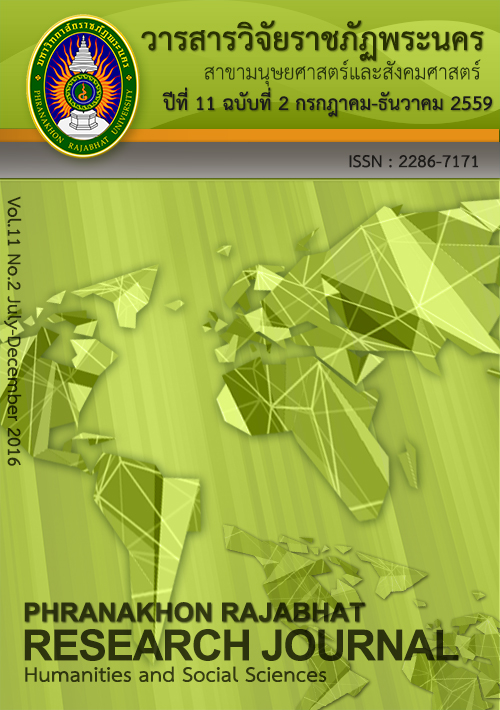ปัญหาการนำเครื่องมืออิเล็กทรอนิกส์มาใช้กับการปล่อยชั่วคราวจำเลยในชั้นพิจารณาคดีของศาล
Main Article Content
Abstract
หลักการที่สำคัญในการดำเนินคดีอาญาตามกระบวนการยุติธรรม คือการมีตัวจำเลยเข้าสู่กระบวนการยุติธรรมเพื่อพิสูจน์ความบริสุทธิ์ของตน โดยหลักการแล้วไม่ควรควบคุมตัวบุคคลนั้นไว้ เว้นแต่มีเหตุจำเป็นให้ต้องกระทำเช่นนั้น ทั้งนี้ก็เพื่อเป็นหลักประกันในการมีตัวจำเลยและเพื่อป้องกันมิให้จำเลยไปกระทำผิดอีกหรือขัดขวางการดำเนินคดีโดยไปยุ่งเกี่ยวหรือทำลายพยานหลักฐานโดยมิชอบและได้มีข้อสันนิษฐานว่าจำเลยไม่มีความผิด ซึ่งก่อนที่จะมีคำพิพากษาอันถึงที่สุดแสดงว่าบุคคลใดได้กระทำความผิดจะปฏิบัติต่อบุคคลนั้นเสมือนเป็นผู้กระทำความผิดมิได้ ดังนั้น แม้จะมีการกล่าวหาบุคคลหนึ่งบุคคลใดว่ากระทำผิดอาญา การปล่อยชั่วคราวนำไปสู่ความไม่เสมอภาคในแง่ที่ว่าบุคคลที่มีฐานะทางการเศรษฐกิจดีย่อมมีโอกาสที่จะได้รับการปล่อยชั่วคราวดีกว่าบุคคลที่มีฐานะทางเศรษฐกิจไม่ดีเพราะตามหลักเกณฑ์ การปล่อยชั่วคราวตามกฎหมายไทยมีการอนุญาตให้ปล่อยชั่วคราวโดยไม่มีประกัน หรือมีหลักประกัน หรือมีประกันและหลักประกัน ดังนั้นหากมีวิธีการอื่นนอกจากการอนุญาตให้ปล่อยชั่วคราวดังกล่าวสำหรับผู้ต้องหาหรือจำเลยที่มีฐานะทางเศรษฐกิจไม่ดี ย่อมทำให้ผู้ต้องหาหรือจำเลยเหล่านั้นมีโอกาสได้รับการปล่อยตัวมากขึ้น ดังนั้นหากมีการนำเครื่องมืออิเล็กทรอนิกส์มาใช้จะเป็นหลักประกันเสรีภาพและให้โอกาสผู้ด้อยกว่าได้เข้าถึงความยุติธรรมได้มากขึ้น
ดังนั้น ผู้ศึกษาจึงขอเสนอแนวทางในการนำเครื่องมืออิเล็กทรอนิกส์มาใช้ในการปล่อยชั่วคราวโดยเสนอให้นำเครื่องมืออิเล็กทรอนิกส์มาใช้เป็นหลักประกันในการปล่อยชั่วคราวจำเลยซึ่งจำเลยที่จะเข้าหลักเกณฑ์นั้นต้องมีฐานะยากจน ไม่สามารถหาหลักประกันได้ และที่สำคัญคือต้องร้องขอด้วยความสมัครใจว่าจะให้ใช้เครื่องมืออิเล็กทรอนิกส์แทนหลักประกัน และศาลจะใช้ดุลพินิจว่าจะอนุญาตให้ปล่อยชั่วคราวหรือไม่ โดยที่ผู้ต้องหาหรือจำเลยนั้นต้องถูกควบคุมหรือจำกัดพื้นที่โดยใช้เครื่องมืออิเล็กทรอนิกส์ ทั้งนี้เพื่อให้เกิดความเท่าเทียมกันในการเข้าถึงกระบวนการยุติธรรม
Core principle of criminal litigation under judicial administration is having the defendant enter into criminal justice procedure to prove his innocence. In principle, the defendant should not be detained except it is necessary to do so. It is the assurance to have the defendant present during trial and to prevent the defendant from commission of other offences or obstruction of justice by means of tempering evidences. The defendant is presumed innocence until proven guilty. Unless a final judgment is filed against the defendant, he shall not be treated as an offender. Provisional release, however, can lead to inequality. The defendant with high social status is more likely to be released than the counterpart with lower social status. Criteria on provisional release under Thai law, the competent authority releases a person from custody without bail, with security or with bail and security. In practice and in most cases, judges always order provisional release with security. If there is other means provided, besides provisional release by permission, for the defendant with low income, a chance for provisional release of such defendant will be increased. The application of electronic monitoring devices for provisional release shall assure the freedom and access to justice to the have-nots.
The researcher hereby suggests that electronic monitoring devices shall be used as another alternative for provisional release for the disadvantaged defendant on voluntary basis as a replacement for security. In addition, judges will use discretion whether to order provisional release with condition of electronic monitoring and the defendant is released under travelling and space restriction to ensure equality of access to justice.
Article Details
Each publish articles were copyright by Phranakorn Rajabhat University
Any contents which appeared in each articles in the journal were authors personal opinion. It did not relate to Phranakorn Rajabhat University and other instructors in the university. Each authors would take responsibility on their articles. If there are any mistake, the authors will take responsibility themselves


